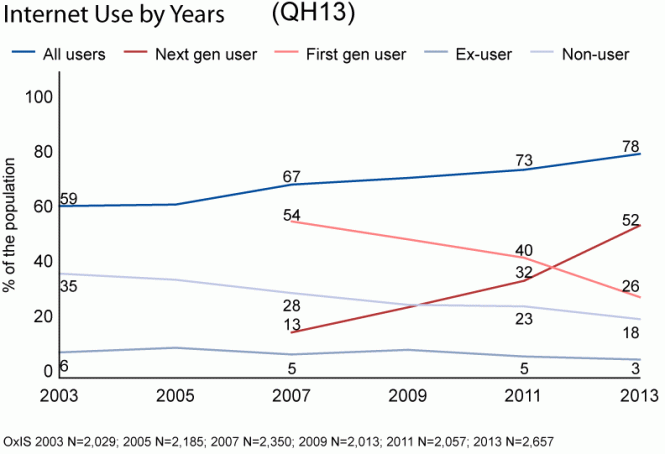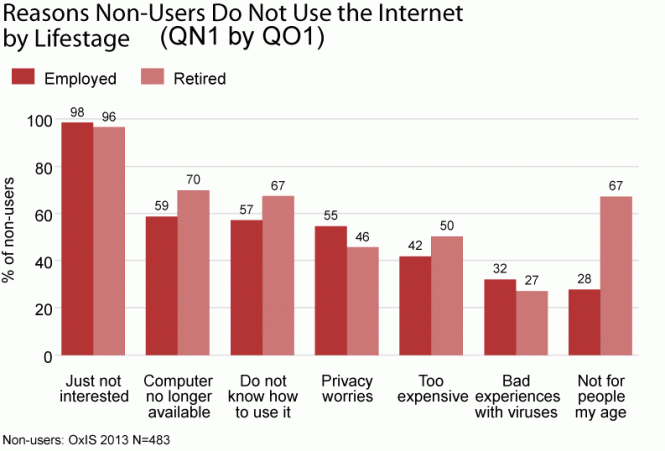3 Sep 2013
Non-use of the Internet has declined substantially over the past two years. In 2013 about 18% of the population had never used the Internet, compared to 23% in 2011. This five percentage point decline in two years is about the same as the five percentage point decline in the four years from 2007–2011. This is real progress in addressing the digital divide, but nearly one in five remain without access, making the digital divide a continuing issue even at the basic level of access.

Internet use has climbed to 78% of the British population.
There is no single reason people give for for not using the Internet; reasons are multiple and interrelated. Cost, access, interest and skills are all important; moreover, their relative importance varies across individuals and their circumstances.
Many non-users are simply not interested in being online. In fact, nearly all non-users cite a lack of interest as one reason for not being online. Retired people also give “not for people my age” as a major reason, but that is very similar to lack of interest. Retired non-users were also more likely than employed non-users to cite lack of a computer (70% vs 59% in 2013), and lack of knowledge (67% vs 57%) as important reasons for not using the Internet. There is an element of choice at work here: lack of interest suggests that many people choose to remain offline. There is no evidence that they are opposed or resistant or restricted from going online, rather the Internet is not important to them: they just don’t care.

Non-users say that the reason they don’t use the Internet is that they are just not interested.